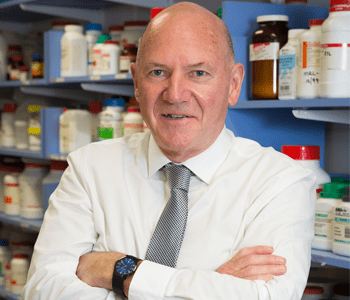
Transforming hormone therapy for breast and prostate cancer
Published: 10/10/19 12:21 AM

Wayne Tilley
Breast and prostate cancers although located in different parts of the body and in different genders, are actually fairly similar in that they are both driven by abnormally high hormone receptor activity.
Surgery and radiation therapy can effectively treat these cancers when the tumour in the early stage, when it is confined within the organ of origin.
However, for cancers that have spread out of the breast or prostate, the major treatment strategy is to completely abolish the activity of the offending hormone receptor so it cannot take in the hormones needed for growth. This treatment strategy is called hormone deprivation therapy and has been used for the past century.
For some people with breast or prostate cancer, this therapy can be effective for years, but often the side effects are debilitating and patients feel miserable. For others, this therapy does not work at the outset or their cancer rapidly becomes resistant.
It is these highly aggressive therapy-resistant tumours that kill people with breast or prostate cancer, a problem which has no yet been overcome.
To make significant progress towards curing these two diseases and improving quality of life, a new way of thinking about treatment is required.
NBCF has funded Professor Wayne Tilley and his team of national and international collaborators to investigate a ground-breaking new treatment strategy that aims to rehabilitate rather than abolish the offending hormone receptors that drive breast and prostate cancer – returning them to their normal state that doesn’t promote tumour growth.
Importantly, Professor Tilley aims to repurpose existing approved drugs which will vastly increase the speed of translating findings from the laboratory to the clinic and benefit patients.
Our exciting preliminary research indicates that this approach will increase the lifespan of patients with therapy-resistant breast or prostate cancer, as well as improving their quality of life by reducing side effects.